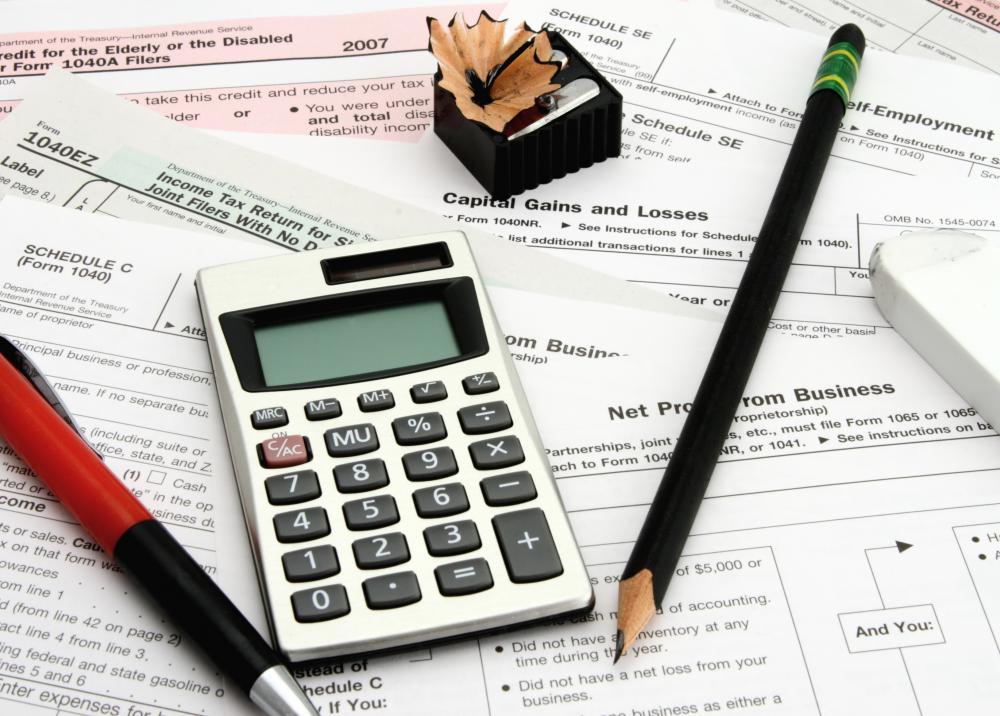At WiseGEEK, we're committed to delivering accurate, trustworthy information. Our expert-authored content is rigorously fact-checked and sourced from credible authorities. Discover how we uphold the highest standards in providing you with reliable knowledge.
What does a Tax Analyst do?
A tax analyst is a financial officer specializing in dealing with a company's tax issues. One of the most important jobs an analyst performs is reviewing a company's tax practices and ensuring that the organization is following the law. Filing national, regional, and local taxes for a company is also part of the analyst's job. Since tax laws frequently change, a major responsibility of a tax analyst is researching and staying current with all applicable tax codes. Looking at current tax practices and identifying opportunities to save money are additional functions.
Ensuring that a company is following all tax laws appropriately is the major duty of a tax analyst. Reviewing a company's paperwork to see how much tax is owed and why is a time-consuming aspect of this job. This review gives the analyst a strong understanding of a company's tax practices in order to asses whether tax laws are being properly followed. If discrepancies are found, the analyst consults management and make recommendations about how to better ensure legal compliance. When these modifications are approved, an analyst must swiftly put new practices into place.

Filing a company's taxes is another major portion of the job for a tax analyst. This role requires the analyst to complete various tax forms and financial calculations in order to accurately submit all national, regional, and local taxes. In larger companies, a analyst may work directly with government tax officials, such as the Internal Revenue Service (IRS) in the U.S, in order to ensure complex filings are properly submitted.

Being familiar with tax laws is a crucial responsibility of a tax analyst. In many countries, tax laws and requirements change frequently, in both minor and major ways. Tax analysts follow these changes closely and monitor how they will effect the way a company's taxes are dealt with. It is the analyst's responsibility to make sure that tax documents track tax law changes.
Understanding tax law is also important when a tax analyst identifies opportunities for savings. Analysts are responsible for identifying new write-offs or loopholes in laws that may result in less taxes being paid to the government or in a larger tax refund. This duty requires a sharp eye for both the tax laws and for the structure and practices of the business. Locating opportunities to save the company money is a combination of all of the skills necessary to be a successful tax analyst.
AS FEATURED ON:
AS FEATURED ON:












Discussion Comments
@bluespirit - Tax analysts are a type of accountant, but not all accountants are tax analysts. The person that does your husband's taxes is a tax preparer, not an analyst. Tax preparers merely translate the financial results of a given period onto the tax return. A tax analyst influences the business' policies on an ongoing basis in order to save taxes in addition to preparing tax returns.
There are other types of accountants who don't do any type of tax work at all, such as auditors and bookkeepers.
@snickerish - My husband has a financial officer for his small business that created spreadsheets which they could plug in numbers to show the cashflow of the company based on the ever changing numbers of a business at work.
However because the business is so small he has an accountant who does his personal and the company's taxes. I am not sure if an accountant is considered a tax analyst or not.
I could not imagine having to keep up with something as large and as constantly changing as the tax code!
Do small businesses need a financial officer who specializes in tax analysis or is it just larger companies?
Post your comments